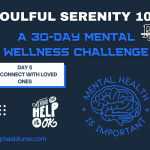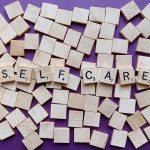
Communication is the lifeblood of any relationship. Whether it’s a romantic partnership, a friendship, or a familial bond, effective communication is the key to building and maintaining a strong and healthy connection. However, despite its importance, many people struggle with communicating effectively in their relationships. Misunderstandings, conflicts, and emotional distance often stem from poor communication. In this article, we will explore the art of effective communication in relationships and provide you with valuable tips to enhance your understanding and connection with your loved ones.
The Importance of Effective Communication
Before diving into the tips for better communication, let’s first understand why it is so crucial in any relationship.
- Builds Trust: Effective communication builds trust between individuals. When you communicate openly and honestly, you demonstrate that you can be relied upon and that you have nothing to hide. Trust is the foundation of a healthy relationship.
- Resolves Conflicts: Conflict is inevitable in any relationship, but how you handle it can make all the difference. Effective communication allows you to address and resolve conflicts in a productive manner, rather than allowing them to fester and grow.
- Enhances Intimacy: Open and honest communication fosters intimacy. It allows you to share your thoughts, feelings, and desires with your partner, creating a deeper emotional connection.
- Strengthens Connection: Good communication helps you understand your partner better, which in turn strengthens your connection. When you actively listen and express empathy, you demonstrate that you care about the other person’s perspective.
- Promotes Emotional Well-being: Healthy communication contributes to emotional well-being by providing an outlet for sharing and processing emotions. It can reduce stress and anxiety and increase feelings of happiness and security.
Now that we’ve established the importance of effective communication in relationships, let’s delve into some practical tips for improving your communication skills.
Tips for Effective Communication in Relationships
Effective communication is the linchpin of thriving relationships. Whether you’re in a romantic partnership, navigating the complexities of friendship, or seeking to foster better connections within your family, the way you communicate can make or break the bonds you share.
Here are 10 practical tips designed to enhance your communication skills and empower you to build deeper, more understanding relationships with the people who matter most in your life.
1. Active Listening
Active listening is a fundamental aspect of effective communication. It involves not just hearing the words the other person is saying but also fully engaging with their message. Here are some key elements of active listening:
- Give your full attention: When your partner is speaking, put away distractions like your phone or TV and focus solely on them.
- Maintain eye contact: Eye contact shows that you are engaged and interested in what the other person is saying.
- Avoid interrupting: Let your partner finish speaking before you respond. Interrupting can be perceived as disrespectful and can hinder the flow of communication.
- Ask clarifying questions: If you’re unsure about something your partner said, ask for clarification rather than making assumptions.
- Use verbal and non-verbal cues: Nodding, smiling, and making encouraging sounds like “mmm-hmm” can signal that you’re actively listening and encouraging the speaker to continue.
2. Practice Empathy
Empathy is the ability to understand and share the feelings of another person. It’s a critical component of effective communication because it shows that you care about your partner’s emotions and perspective. Here’s how to practice empathy in your relationships:
- Put yourself in their shoes: Try to see the situation from your partner’s perspective. How might they be feeling, and why?
- Validate their feelings: Even if you don’t agree with your partner’s emotions, acknowledge them and let them know that you understand how they feel.
- Use “I” statements: When discussing your own feelings or concerns, use “I” statements to express yourself without blaming or accusing. For example, say “I feel hurt when…” instead of “You always…”
- Avoid judgment: Refrain from passing judgment on your partner’s feelings or experiences. Everyone has their own unique perspective, and it’s important to respect that.
3. Be Clear and Specific
Ambiguity and vagueness can lead to misunderstandings and frustration. To avoid this, strive to be clear and specific in your communication:
- Use concrete language: Instead of using vague terms like “sometimes” or “a lot,” provide specific examples and details to illustrate your point.
- Avoid assumptions: Don’t assume that your partner knows what you mean. Clearly express your thoughts and expectations.
- Ask for clarification: If your partner says something that you find unclear, politely ask for more information or clarification.
- Be direct when necessary: While it’s important to be gentle and considerate in your communication, there are times when you need to be direct and assertive to convey your needs and boundaries.
4. Manage Your Emotions
Strong emotions can often cloud communication and lead to heated arguments. Learning to manage your emotions is vital for effective communication:
- Take a break if necessary: If you find yourself becoming too emotional or angry, it’s okay to take a break from the conversation. Let your partner know that you need some time to cool down and return to the discussion later.
- Practice deep breathing: Deep, slow breaths can help calm your nerves and reduce the intensity of your emotional reactions.
- Use “I” statements: As mentioned earlier, using “I” statements allows you to express your emotions without blaming or accusing your partner.
- Seek support: If you find that managing your emotions is challenging, consider seeking the help of a therapist or counselor who can provide guidance on emotional regulation.
5. Avoid Negative Communication Patterns
Certain communication patterns can be harmful to relationships. It’s important to recognize and avoid these negative habits:
- Criticism: Avoid criticizing your partner’s character or personality. Instead of saying, “You’re so lazy,” try, “I would appreciate it if you could help with the household chores.”
- Defensiveness: Defensiveness is a natural reaction when we feel attacked, but it can hinder communication. Instead of becoming defensive, try to listen and understand your partner’s perspective.
- Stonewalling: Stonewalling involves shutting down and refusing to engage in communication. If you need a break from a difficult conversation, communicate that to your partner rather than stonewalling.
- Blame-shifting: Taking responsibility for your own actions and feelings is crucial. Blaming your partner for everything that goes wrong in the relationship is counterproductive.
6. Practice Non-Verbal Communication
Non-verbal cues can convey a wealth of information in a relationship. Pay attention to your body language, facial expressions, and gestures:
- Maintain open body language: Avoid crossing your arms or appearing closed off. Open and relaxed body language can signal that you are approachable.
- Smile and make eye contact: These non-verbal cues show warmth and interest in the conversation.
- Use touch: Physical touch, like holding hands or giving a hug, can communicate affection and closeness.
- Gestures of affirmation: Use gestures like nodding or leaning in slightly to show that you are engaged in the conversation.
7. Practice Mindfulness
Mindfulness involves being fully present in the moment and aware of your thoughts and feelings without judgment. It can be a powerful tool for improving communication in relationships:
- Stay present in conversations: When you’re talking to your partner, avoid distractions and be fully present.
- Notice your reactions: Be aware of your emotional reactions during conversations. Are you becoming defensive or agitated? Mindfulness can help you manage these reactions.
- Practice active listening: Mindful listening involves giving your full attention to the speaker without thinking about what you’ll say next.
- Take breaks when needed: Mindfulness also means recognizing when a conversation is becoming too heated and taking a break to regain composure.
8. Communicate Your Needs
In a relationship, it’s essential to communicate your needs and desires to your partner. Your partner can’t meet your needs if they don’t know what they are:
- Use “I” statements: Express your needs using “I” statements to make them clear without sounding demanding. For example, say, “I need more quality time together” instead of “You never spend time with me.”
- Be specific: Clearly articulate what you need. If it’s quality time, discuss what that looks like to you. Do you want to go on dates, have deeper conversations, or engage in shared activities?
- Listen to your partner’s needs: Communication is a two-way street. Encourage your partner to express their needs as well, and listen attentively when they do.
9. Seek Professional Help When Necessary
There are times when communication challenges in a relationship may be too complex or deeply rooted to resolve on your own. In such cases, seeking the help of a professional therapist or counselor can be incredibly beneficial. A trained therapist can provide guidance, tools, and strategies to improve communication and address underlying issues.
10. Practice Patience and Understanding
Improving communication in a relationship is a process that takes time and effort. It’s essential to be patient with yourself and your partner as you work on enhancing your communication skills. Understand that you may make mistakes along the way, but the key is to learn from them and continue to grow together.
Conclusion
Effective communication is the cornerstone of healthy and fulfilling relationships. By actively listening, practicing empathy, being clear and specific in your communication, managing your emotions, avoiding negative communication patterns, and using non-verbal cues, you can build stronger connections with your loved ones. Additionally, incorporating mindfulness, communicating your needs, and seeking professional help when necessary can further enhance your communication skills and contribute to the overall well-being of your relationships.
Remember that communication is a lifelong skill that can always be improved upon. The effort you put into enhancing your communication will not only benefit your current relationships but also serve you well in building new, meaningful connections in the future.







